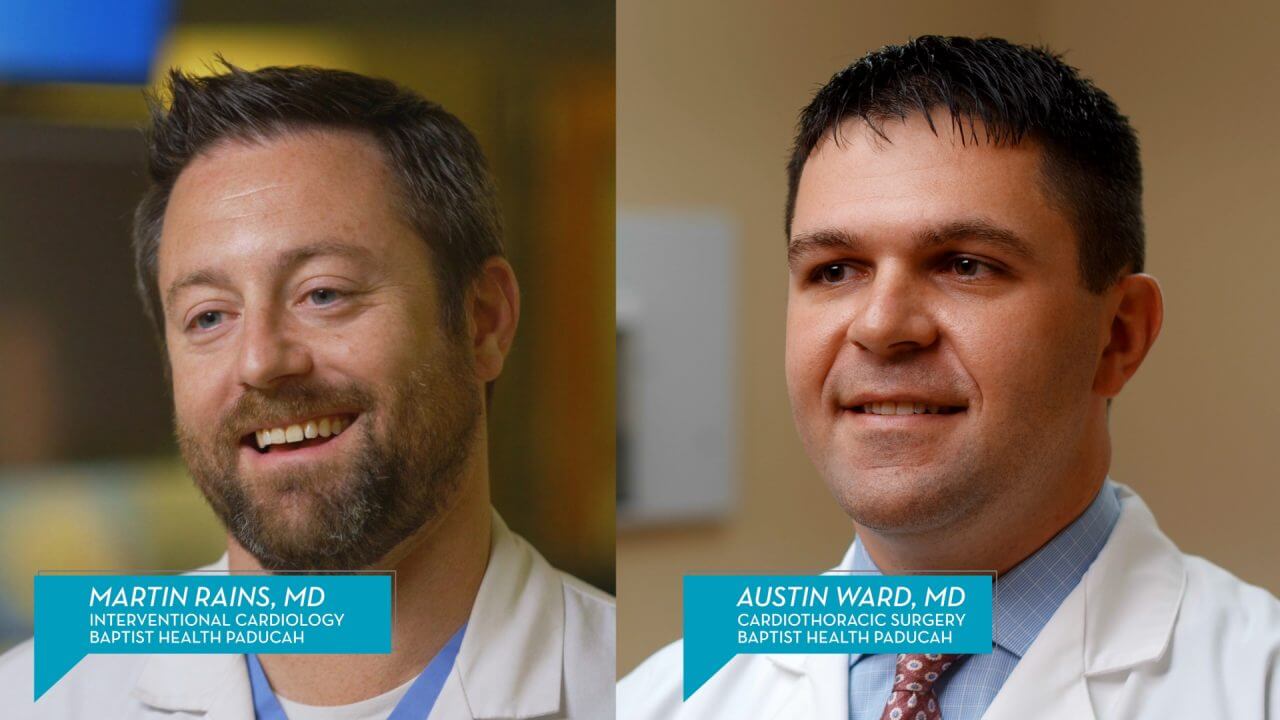Recognizing the Symptoms of Heart Disease in Women
Baptist Health Paducah: Recognizing the Symptoms of Heart Disease in Women
Cardiologist Martin Rains, MD, explains that women often experience milder heart attack symptoms and emphasizes the importance of recognizing the signs and seeking help quickly.
Recognizing the Symptoms of Heart Disease in Women Health Talks Transcript
Martin Rains, MD, Cardiology
There are many forms of heart disease, but the most common is coronary artery disease, which is blockage of the arteries that actually supply the heart as a pump — the blood that it needs to do its job. Classic textbook symptoms of a blocked artery or heart disease-related symptoms would be an “elephant sitting on my chest.” Statistically, women are less likely to experience that sort of pronounced textbook-type episode, and so for that reason, women are less likely to come in early, at the onset of symptoms, which actually leads to worse outcomes for women.
Tina Hicks, Sedalia, Kentucky
I was having pains in my chest. At first, I tried to ignore it, thinking it would go away. It just didn’t. I’d been hurting all morning long, but I went ahead and went into work, and as I got to work, it got worse. I called my primary physician. He told me to follow up with my cardiologist in Nashville. She never returned either one of our calls. I finally told him, I said, “You need to find me another cardiologist.” He sent me to Dr. Rains.
Dr. Rains
We found that the beginning of the main artery that supplies two-thirds of her heart’s blood supply was severely narrowed, and when I saw that, I could logically connect her symptoms to the findings and then fix it with one stent.
Hicks
You know when all this happened, I realized I need a doctor I can depend on. I don’t think you can afford to have a cardiologist you can’t get in touch with. I feel a lot better. I think I’m more comfortable having Dr. Rains here, close here to home.
Take action! Have you ever wondered how healthy your heart is? This quick heart health risk assessment can compare your actual age to your heart’s biological age, as well as calculate your risk of developing cardiovascular disease.



